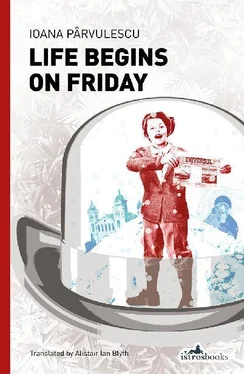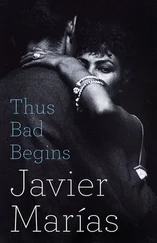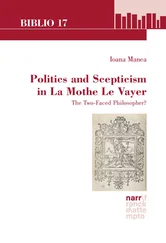I told him not to address me formally, to call me by my first name, but he said that it would be over-familiar and so he carried on addressing me with the formal you .
‘Do not take it amiss,’ he went on, ‘but everything you have done this morning puzzles me.’
I did not understand why. He hesitated to tell me, and so I had to insist and finally, reluctantly, he told me the following: I addressed him by his first name, although in effect we did not know each other and, although I am older than he, it is not the done thing, unless you state that it is your intention; I did not rise to my feet when his mother entered and left, which was ‘unbelievable,’ his poor mother had blushed in embarrassment in my stead; I do not know how to kiss a hand (‘you placed your lips in the middle of the back of the hand, whereas the hand should be kissed on the knuckle of the middle finger, you should barely touch it with your lips, you should grasp the fingers, without squeezing them, and then place the shadow of a kiss on the glossy skin of the middle knuckle’); the answers I gave to his mother’s questions, as well as to his questions, all had a certain abruptness, lacking the essential terms of polite address, madam, sir, thank you ; and when he thanked me, I never replied ‘you are welcome, sir!’; my hair was cut strangely, freshly cut, but as for my completely shaven cheeks, at my age…; I seem to have a fear of horses; I talk seldom, but when I do there is something strange about it, he cannot say what; and as for how I ate my breakfast, he does not even want to mention it, it would be indelicate to do so, but he has never seen such a messy, sloppy manner of eating. It would not surprise him if he saw me greet somebody without lifting my hat. He concluded in a different tone of voice: ‘Who are you in fact, Mr Crețu? Where do you come from? I am merely curious, but if it is hard for you to tell me, I shall not insist.’
The question made me shudder. It was as if the man divined what was happening to me and to win time I asked him: ‘What do you think, Alexandru? Or, if you prefer, what, Sir, do you think?’
‘No, please continue to call me by my first name, I like it more, it is more direct, I will try to accustom myself to saying it, in time. To be honest, I have thought of a number of theories, but none of them are satisfactory. If you are from a foreign country, for example, why do you not know how to kiss a hand, for example? If you are, as people say — forgive me, but I repeat it only for the sake of the discussion — a malefactor, why do you have such a gentle and absent air? The hypothesis is out of the question: your face is that of an honest man. I thought that you might be — there have been cases, I know of one that occurred last year — a man with a false identity, let us say, a man of the slums who has invented an aristocratic past for himself, but you do not seem to be from the slums, and nor do you claim to be an aristocrat. But then again, nor do you seem to be from the centre of the city or from a foreign country or from the countryside. You seem not to be from anywhere.’
I said calmly: ‘I think you are right. I’m not from anywhere,’ but he was afraid that he had insulted me.
And then, in an uncontrolled outburst, which I may end up regretting, I told him everything, with more details than I gave the doctor: the fact that I thought I came from another world, although not from another country. Strangely, unlike the doctor, who immediately suspected I had something to hide and was feigning madness, Alexandru almost believed me.
‘That is exactly how you behave, indeed, and it is extraordinary, if I were to put together everything I have observed about you, you seem like a man from another time, one not yet known to me. Mr Crețu, I am not regarded as being very intelligent, in the family — Mișu has the sharp mind — and nor have I made much effort to study hard. But ever since I witnessed Dr Gerota’s demonstration of X-rays, ever since microscopic creatures were discovered and it has been known what those strange animals look like, which are responsible for epidemics, the influenza microbe, for example, which killed so many people when I was a youth… erm… ever since it has been possible to speak in a whisper and have a man hundreds of kilometres away hear you as if he were standing next to you, ever since we have been able to see the moon with a telescope, ever since they have made so many attempts to fly away from the earth with the Zeppelin and attempts to replace the hippomobile with an automobile, with horses that cannot be seen and do not need shoeing — what will the ironsmiths do?… erm… so many marvels of science have occurred — I do not even try to know them all, our ancestors would die of amazement on the spot — well, I for one think that anything is possible. Given that people are even talking of immortality, then why should this not be possible? Nothing that man will be able to do or achieve henceforth will surprise me.’
He stood up and started pacing up and down the room agitatedly, between the fireplace and the window, while I listened to him insatiably. But then came the blast of cold water.
‘But one thing does not fit, no matter how much I would like to believe you. If science had achieved something of the sort, you would have had to know about it, to know that you were the first who… but since you know nothing, it is more likely to be only an aspiration, an ideal, a figment of imagination that you have come to believe to be real. Perhaps what Dr Margulis supposed is the only acceptable explanation. Have patience and I believe that you will find the explanation for yourself in the end.’
And with the selfishness of all people in love, he turned his attention away from me, as if what I had told him were a mere bagatelle, and came back to his own pressing concerns: he asked me, in fact begged me, to go to the Margulis house that afternoon at five o’clock, finding some pretext or other, and if Miss Iulia was in a position to receive him, to send him word. He would wait for me by the St Sava College. And then he surprised me by inviting me to his New Year’s Eve party and told me not to worry, because he would place me in the hands of the family tailor. That was the last thing I was expecting, a tailor! True, I had already been tailored with a bandage, and the tailor would have to take account of my shoulder.
Alexandru added, sombrely: ‘I invite you even if I will perhaps not be present. My future is uncertain in this moment. I shall inform my sister Marioara, who is taking care of the preparations. It will be a rather formal party, there will also be newspapermen there, since I’ve told you that profession interests me.’
The hands revolved unseen, because the fog obscured the face of the clock on the façade of the Prefecture of Police. Petre the coachman had as usual left his watch at home and he was afraid he might be late. He had been summoned to come at eleven o’clock. If he had not known the way, he would have got lost, so alien did the white city seem, not even sounds came from where they should have, and the horse took fright when they came face to face with another carriage. He had with him the chocolate cream and almond cream that he had bought from the confectioner, to sweeten the policemen.
For a Saturday, there was a strangely large number of people there; men and women, some standing, some sitting, some walking up and down the broad ground floor lobby aimlessly, some standing at doors. You would have said every form of distress and person in distress had assembled at the police station, now that Christmas was over. Caton Lecca was there too, and from his first-floor office, the one with the three arched windows right above the main entrance, raised voices could be heard, and the soldiers were walking around on tiptoe. The chiefs were arguing among themselves, and what filtered through the door were mutual accusations the likes of which had never been overheard there before. Petre was growing more and more frightened, because the man who was shouting the loudest was Mr Costache Boerescu, who had sent word that he should come. What would happen when he came face to face with him! Obviously, the wallet could no longer turn up, since the men had come to empty the privy on the very same day — blind luck — and so even if they made a search, nothing would be found, but the thought gave him no peace and it was as if it had begun to reek. His horse, Murguțu, had started to limp in that damned fog, and limping was a bad sign, because he was highly skilled at shoeing horses, he knew how to make a horse stand calmly, and sometimes his assistant did not even need to use the bull tongs. His children ran riot, but horses obeyed him, and anyway he was more patient with them, and spoke to them lovingly. And here he was sweating like a horse in fear, although the dampness of the fog chilled him to the bone.
Читать дальше












